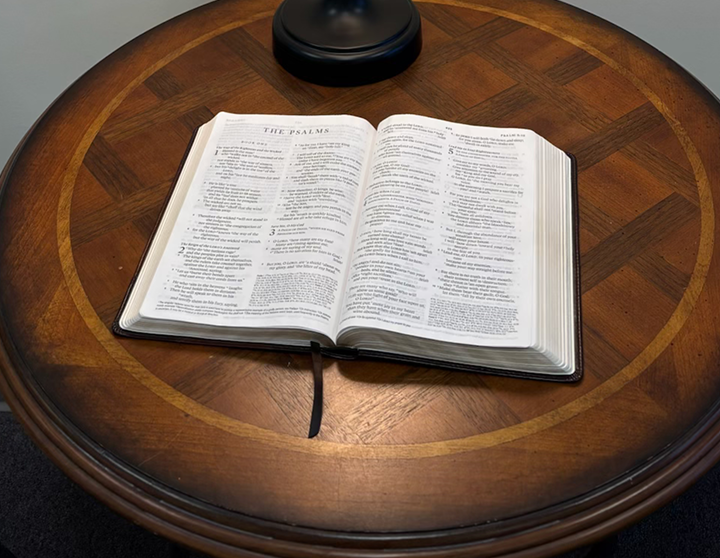Philosophy of Worship

Philosophy of Worship
God alone is worthy of worship, and our primary purpose in life is to glorify and enjoy Him (1 Corinthians 10:31; 1 Peter 4:11). Though all of life is to be a spiritual service of worship to God (Romans 12:1-2), God is specially present in the gathering of the saints corporately for worship on the Lord’s Day (Psalm 29:1-2; Hebrews 10:25).
As a church, we are committed to the ordinary means of grace—word, sacrament, and prayer—as the primary channels through which God communes with and sanctifies His people (Acts 2:42). Each week as we gather together for worship, we come in holy reverence of God and dependence on the Spirit to receive the benefits of Christ’s accomplishment for us in the cross and resurrection. Our goal in worship, then, is to treasure the person and work of the Lord Jesus Christ, and to experience afresh the joyous union we share together in Him as we worship in Spirit and truth (John 4:23).
Our Corporate Worship Values
-
- We value a public worship form that communicates the supremacy of God. Therefore, we will attempt to design a service where we can hear God’s call to worship him. We will listen as he speaks through his Word, and we will respond back to him. We will read the Bible, pray the Bible, sing the Bible, and preach the Bible to continually reorient our souls to worship him each Lord’s Day.
- We value seeking hard after God as an all-satisfying end in Himself. Therefore, we desire for the worship service to be a place where we can be in the presence of the Lord in an unhurried manner. He is the treasure, the pearl of great price, and we will come with an earnestness and wholeheartedness that desires God more than anything.
- We value letting the elements of the service provide space for renewing our lives in the gospel. The order of service begins with a preparation of worship and moves to a call to worship from God. We continue our worship by bringing songs of praise and a prayer of adoration. From the opening praises we move to a diligent reading of an Old or New Testament passage that frequently forms our profession of faith. The pastoral prayer provides a time of corporate and personal confession of sin as well as intercession for people. After we confess our sins, we love to hear how God always has an assurance of pardon for his people which naturally leads us into a time of singing and prayerful thanksgiving. Because God has spoken through his Word, we then hear his words through his appointed preacher, listening carefully. We finish our service by responding in song, making a commitment to live more faithfully, and seeking grace in the Lord’s Supper.
- We value the importance of old and new, historic and current contributions to the church’s worship content – including prayers, confessions, and songs. We believe the Holy Spirit can use past and present Saints to express truth in fresh ways so we all might grow in seeing Jesus more clearly, loving him more dearly, and following him more nearly.
- We value being a singing people, therefore the music that we sing should be corporate, accessible, and excellent. The music should be singable and understandable as well as a reflection of the time and place in which God has placed our congregation. Because worship is a dialogue between God and His people, it is important for the congregation to be able to participate. Songs in worship are useful as exaltation or praise to God, instruction in the truths of the Gospel, and as prayer.
- We value fervent, Biblical, Spirit-anointed, God-exalting, personally-helpful preaching. Therefore, we will pray that our ministers will be submitted to sitting under the Word and will exhort the people to do the same. Generally, the Word will be preached in an expository manner for the building up of us all with the whole counsel of God.
- We value people leading in worship within the range of gifts that God bestows on us, never compromising spiritual qualifications for aesthetic considerations, as we pursue undistracting excellence in spiritual leadership.
- We value a determination to welcome people different from ourselves for the sake of Christ. We will continue to embrace God’s call for visible manifestations of love toward each other and our neighbors, providing opportunities before, during and after the service to practice hospitality.